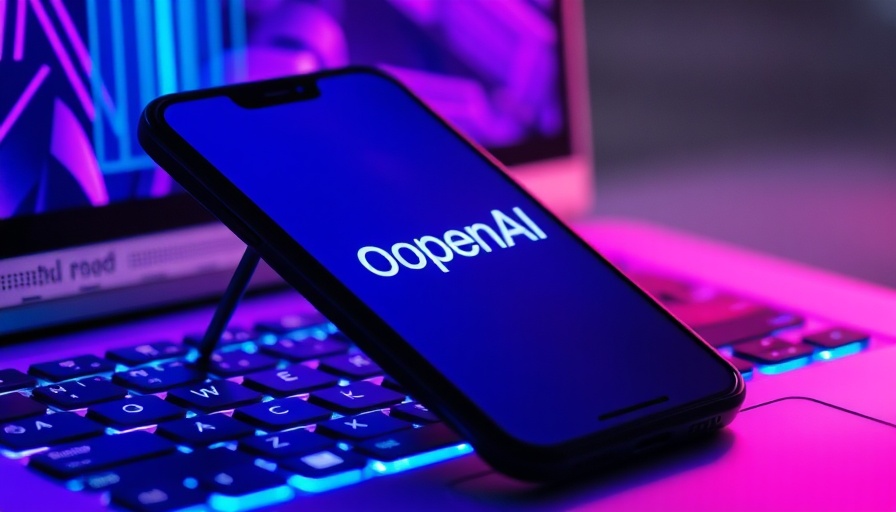
Understanding the Legal Dispute Between Elon Musk and OpenAI
The ongoing legal battle between Elon Musk and OpenAI has recently taken a notable turn, with both parties agreeing to expedite the upcoming trial concerning the company's shift from a non-profit to a for-profit model. The trial, now set for the fall, stems from Musk's claims that OpenAI has deviated from its original mission of creating AI for the public good. This controversy highlights significant tensions in the tech industry as organizations navigate the balance between profit motives and ethical responsibilities.
The Origins of the Dispute
This legal struggle dates back to Musk's departure from OpenAI in 2018, a year after he co-founded the organization. His exit came before OpenAI's strategic pivot that commenced in 2019, when it began structuring itself to attract substantial private investments. Musk, having initiated his own AI company, xAI, alleged that OpenAI's transformation prioritizes profit over its initial philanthropic goals. Critics argue that such profit-driven motives could compromise the organization’s foundational ethics related to AI’s development.
Legal Implications for AI Development
Musk's lawsuit raises pivotal questions regarding the commercialization of AI technologies. Both Musk and OpenAI have filed motions regarding how the trial should be adjudicated—by a judge or a jury—and are likely to present arguments about the ethical ramifications of AI’s financial motivations. Significantly, previous court rulings have favored OpenAI, dismissing Musk's requests that sought to halt the company's evolution into a for-profit entity. This decision illustrates the legal system’s recognition of the need for innovative parts of the economy, particularly in high-stakes sectors like artificial intelligence.
What This Means for OpenAI's Future
OpenAI’s shift to a for-profit model is designed not only to bolster its funding but also to enhance its competitive positioning in the AI sector. The company recently secured $6.6 billion in funding and is in negotiations for a massive investment from SoftBank, with offers amounting to $40 billion. These financial maneuvers reflect a broader trend where tech startups must adapt to an aggressive investment landscape. As noted in recent analysis, traditional frameworks of non-profit motives are increasingly challenged by the reality of extensive funding needed for AI research and development.
Potential Outcomes and Broader Implications
The outcome of this trial is poised to have far-reaching implications for OpenAI and the AI industry as a whole. If Musk's claims are upheld, it may prompt a re-evaluation of how AI firms align their business models with ethical considerations. On the other hand, a ruling in favor of OpenAI could solidify its legitimacy to pursue profit while maintaining its commitment to beneficial AI development. The stakes are not limited to the immediate parties involved; they extend to policy makers, stakeholders in the AI community, and society at large, as they grapple with the implications of profit-driven AI technologies.
The Personal Dynamics Behind the Dispute
A key aspect of the ongoing conflict is the personal rivalry between Musk and OpenAI CEO Sam Altman. Their relationship has deteriorated significantly since Musk left the startup, leading to a public war of words. Altman has suggested that Musk's legal pursuits may stem from insecurities about competition, and the tension underscores how personal motivations can sometimes overshadow larger corporate disputes. In the complex landscape of technology, personalities often play a critical role in shaping the future of innovation.
The Road Ahead: What’s Next for AI?
As the trial approaches, stakeholders within the AI sector will continue to monitor the developing narrative. The implications of this legal battle may influence not only OpenAI's trajectory but also the approach of other AI organizations navigating the waters of profit and ethical responsibility. The trial will likely set precedential points regarding the balance between innovative pursuits and moral responsibilities in technology’s most rapidly evolving field.
The recent developments remind us of the intricate dynamics at play in the AI evolution. As businesses and individuals alike explore the frontiers of technology, the outcomes of this trial will resonate beyond courtrooms and into the future of AI.
 Add Row
Add Row  Add
Add 




 Add Row
Add Row  Add
Add 

Write A Comment